FertiCycle making a policy impact at the ESNI event in Brussels
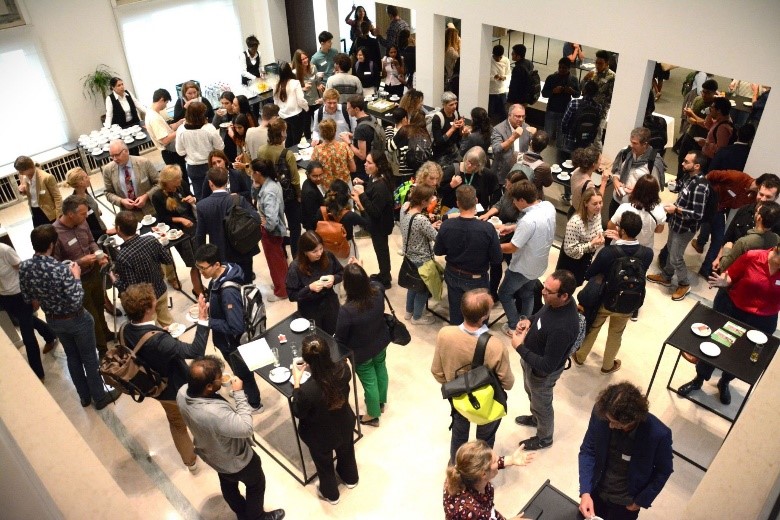 In order to communicate the FertiCycle ESR research findings to policy makers, industry, farmers and other end-users, the FertiCycle consortium co-organised the European Sustainable Nutrient Initiative Conference (ESNI) in Brussels Sept 20th 2023 with partners from the Biorefine Cluster Europe network (https://www.biorefine.eu/events/european-sustainable-nutrient-initiative-esni-conference-2023/).
In order to communicate the FertiCycle ESR research findings to policy makers, industry, farmers and other end-users, the FertiCycle consortium co-organised the European Sustainable Nutrient Initiative Conference (ESNI) in Brussels Sept 20th 2023 with partners from the Biorefine Cluster Europe network (https://www.biorefine.eu/events/european-sustainable-nutrient-initiative-esni-conference-2023/).
This ESNI one-day event had about 170 participants, mainly from consultancies, SMEs, representatives of sectoral/industry associations, policy makers and research institutes. FertiCycle was represented by the coordinator and 7 of the ESRs participating; 3 of them made oral presentations in the workshops, while the other ESRs made 9 poster presentations.
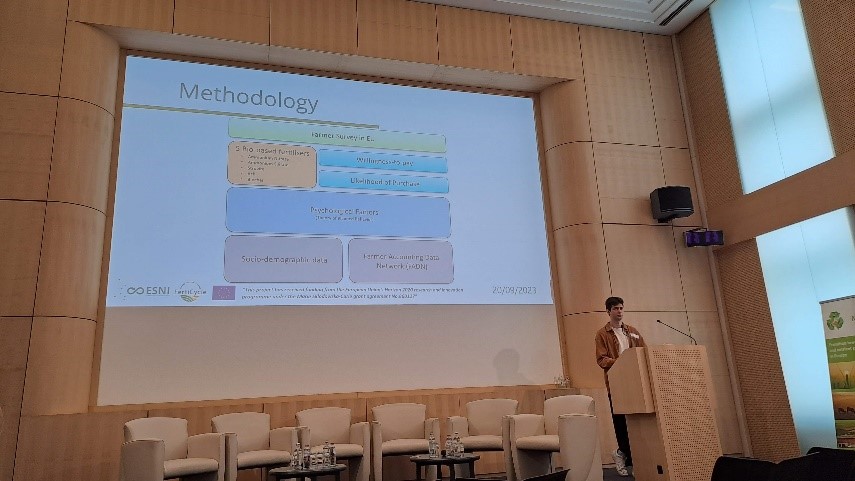 For the two workshops which Ferticycle co-organised, participation was strong. The first workshop, co-organised with the FERTIMANURE project on “Profitability and market acceptance of bio-based fertilizers”, had 45 participants, and was organized with two oral presentations, followed by a panel discussion. ESR-14, Egor Moshkin, from United Experts, made a presentation titled “Exploring the adoption path of bio-based fertilisers: A combined approach of theory of planned behavior and Van Westendorp price sensitivity meter among farmers in the EU”.
For the two workshops which Ferticycle co-organised, participation was strong. The first workshop, co-organised with the FERTIMANURE project on “Profitability and market acceptance of bio-based fertilizers”, had 45 participants, and was organized with two oral presentations, followed by a panel discussion. ESR-14, Egor Moshkin, from United Experts, made a presentation titled “Exploring the adoption path of bio-based fertilisers: A combined approach of theory of planned behavior and Van Westendorp price sensitivity meter among farmers in the EU”.
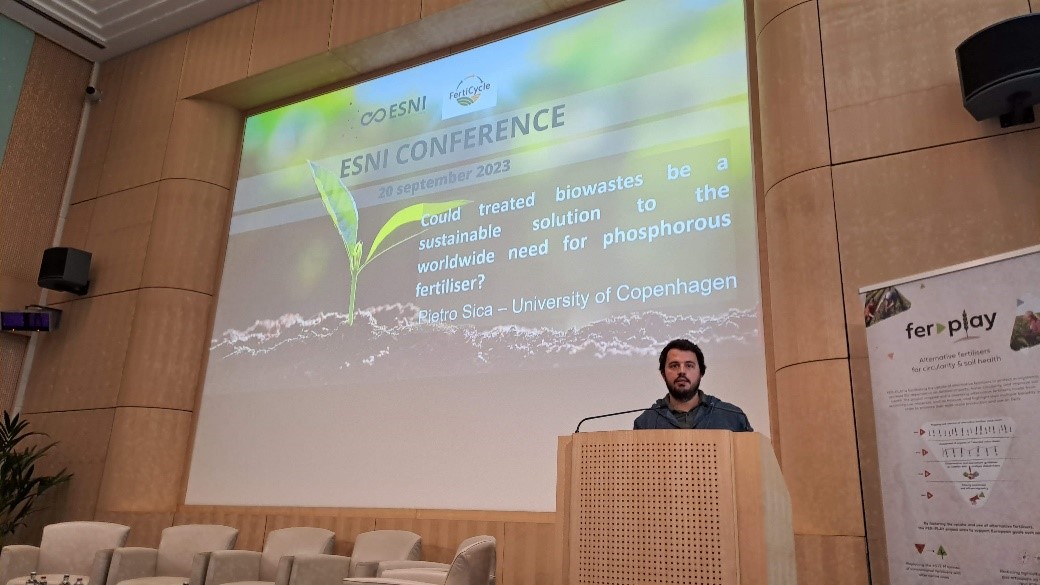 The other workshop, co-organised with the FER-PLAY project on “New bio-based fertilisers from secondary raw material upcycling – technical, commercial and regulatory implications”, had 48 participants and was organized with a brief introduction to the two co-organising projects (FertiCycle by coordinator Lars Stoumann Jensen) and then four short presentations of different bio-based fertiliser types (biochar-P, biowaste organo-mineral, struvite from wastewater and biogas digestate), Here, ESR-10, Pietro Sica, UCPH, gave the presentation titled “Could treated bio-wastes be a sustainable solution to the worldwide need for phosphorous fertiliser” while ESR-4,
The other workshop, co-organised with the FER-PLAY project on “New bio-based fertilisers from secondary raw material upcycling – technical, commercial and regulatory implications”, had 48 participants and was organized with a brief introduction to the two co-organising projects (FertiCycle by coordinator Lars Stoumann Jensen) and then four short presentations of different bio-based fertiliser types (biochar-P, biowaste organo-mineral, struvite from wastewater and biogas digestate), Here, ESR-10, Pietro Sica, UCPH, gave the presentation titled “Could treated bio-wastes be a sustainable solution to the worldwide need for phosphorous fertiliser” while ESR-4, 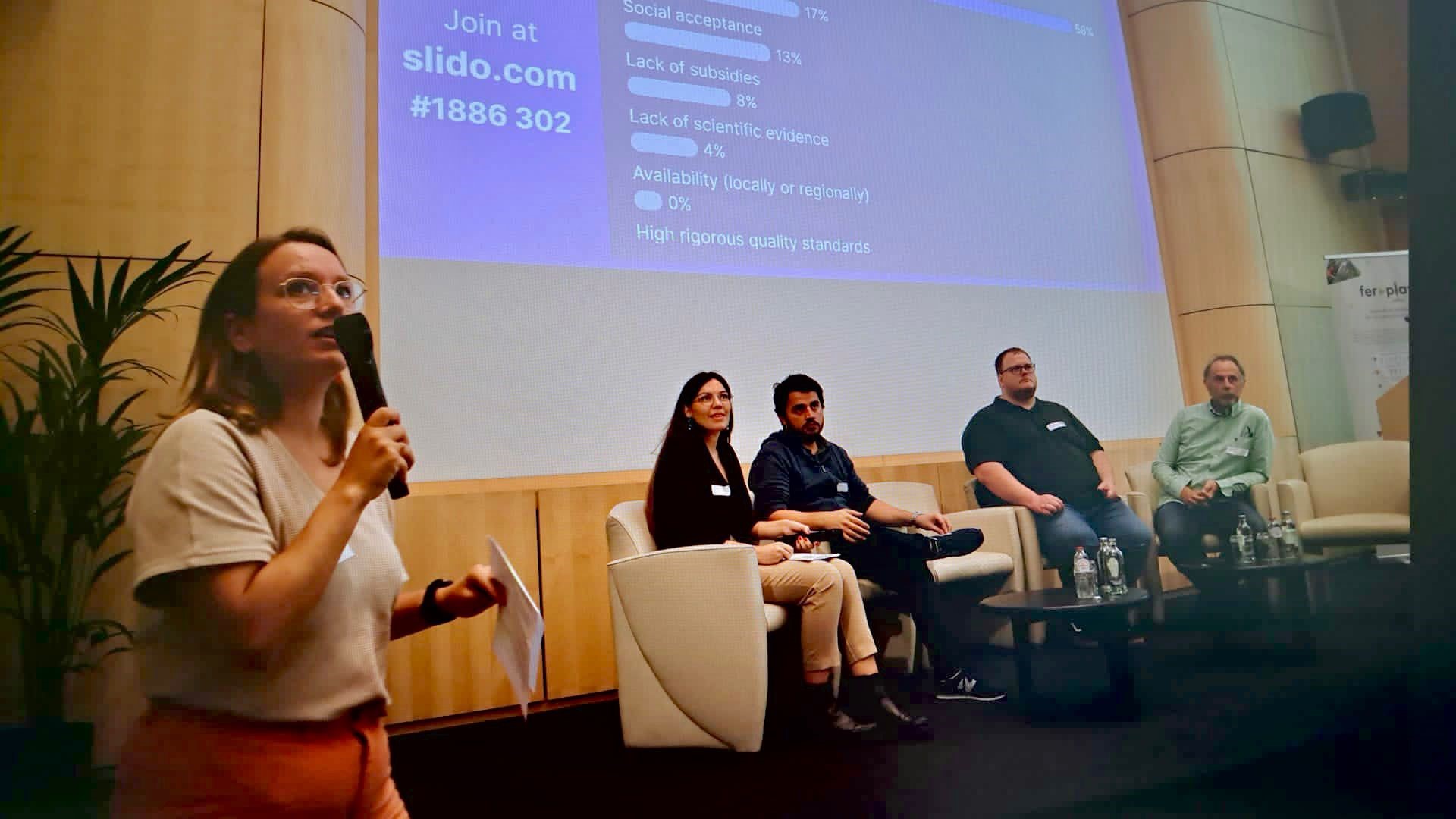 Tomas Sitzmann, UTO gave one titled “Designing novel peat-free organo-mineral fertilisers from recyclable bio-waste”. This was followed by an interactive panel debate between the speakers, supported by an online questionnaire answered by workshop participants.
Tomas Sitzmann, UTO gave one titled “Designing novel peat-free organo-mineral fertilisers from recyclable bio-waste”. This was followed by an interactive panel debate between the speakers, supported by an online questionnaire answered by workshop participants.
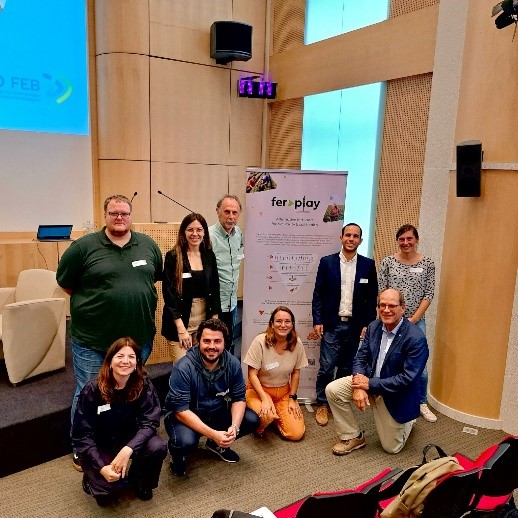 The FertiCycle presence and participation in workshops and panel debates at ESNI was successful, and the ESRs participating had good opportunities for interacting directly with policy-makers, industry representatives and other stakeholders. We believe the many contacts made and the strong impression of FertiCycle ESR’s solid scientific work made on participants at ESNI will lead to new collaborations and have important policy impacts for the FertiCycle outcomes.
The FertiCycle presence and participation in workshops and panel debates at ESNI was successful, and the ESRs participating had good opportunities for interacting directly with policy-makers, industry representatives and other stakeholders. We believe the many contacts made and the strong impression of FertiCycle ESR’s solid scientific work made on participants at ESNI will lead to new collaborations and have important policy impacts for the FertiCycle outcomes.
By Lars Stoumann Jensen
